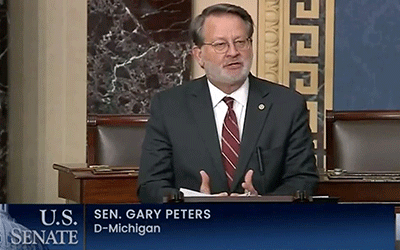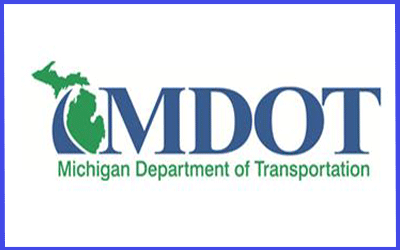
200,000 Michiganders will Gain Access to High-Speed Internet

FOR IMMEDIATE RELEASE
June 26, 2023 Contact: press@michigan.gov
Gov. Whitmer Announces More than 200,000 Michiganders will Gain Access to High-Speed Internet Under Historic Funding from Biden Administration Michigan received fourth-highest grant funding in the nation to expand high-speed internet to households and small businesses.
LANSING, Mich. — Today, Governor Gretchen Whitmer and the National Telecommunications and Information Administration (NTIA) announced Michigan is set to receive over $1.5 billion through the Broadband Equity, Access, and Deployment (BEAD) Program to expand high-speed internet access and digital equity to over 200,000 Michiganders in unserved and underserved areas across the state. Funding for this program comes from the $65 billion Infrastructure Investment and Jobs Act (IIJA) and will help close the digital divide and help ensure Michigan residents have access to affordable, reliable and high-speed internet.
“Today, we have won a game-changing investment to expand access to reliable, affordable high-speed internet to 210,000 more homes across Michigan,” said Governor Whitmer. “We are focused on helping anyone ‘Make it in Michigan,’ with a comprehensive view on economic development that wins projects, invests in people, and revitalizes places. Today’s win will expand economic opportunity for Michiganders and build on the over $700 million in high-speed internet federal funding we have leveraged and $249 million we invested with the bipartisan Building Michigan Together Plan last year. Let’s keep working together to connect more families and small businesses to fast, reliable high-speed internet that meets their needs, lowers their costs, and grows our economy.”
Each state and territory received a minimum of $100 million and the remainder of their allocation is based on the number of locations currently unserved by high-speed internet as identified on the Federal Communications Commission (FCC) National Broadband Map.
“Today’s announcement is going to play a major part in closing the digital divide and connecting Michiganders to education, health care and economic opportunity,” said Lt. Governor Garlin Gilchrist II. “Governor Whitmer and I are committed to expanding access to high-speed internet throughout Michigan and will continue working with anyone to connect Michigan families and small businesses and grow our economy.”
The Michigan High Speed Internet Office (MIHI) will finish the required BEAD 5-Year Action Plan that will set the vision, goals, and priorities for the implementation of the funds. Following the plan, MIHI will develop the BEAD Initial Proposal that will define the subgrant processes that will deploy the funds to achieve the universal availability of high-speed internet across the state.
“The MIHI team is thrilled to see the announcement of the BEAD program,” said Eric Frederick, Chief Connectivity Officer with the Michigan High-Speed Internet Office. “This grant is crucial to achieve affordable, reliable high-speed internet for all Michiganders and close the digital equity gap here in Michigan.”
The National Telecommunications and Information Administration (NTIA) is administering the BEAD Program along with additional funding programs that promote innovation and economic growth by supporting efforts to expand broadband connectivity, including the Realizing Opportunity with Broadband Infrastructure Networks (ROBIN) Grant Program.
“Access to high-speed internet means access to jobs, education, and healthcare. These investments in high-speed internet infrastructure will mean that even the most remote areas of Michigan have equitable access to high-speed internet,” said Zachary Kolodin, Michigan’s Chief Infrastructure Office and Director of the Michigan Infrastructure Office. “The federal funding we’ve received from the BEAD program will allow us to connect more than 200,000 underserved households to high-quality, high-speed internet, ensuring that every home in all of Michigan’s 83 counties has broadband access.”
“High speed internet isn’t a luxury, it’s an essential service that we need for everything from work, school, doctors’ visits, and paying our bills,” said Senator Debbie Stabenow. “With the passage of the Infrastructure Investment and Jobs Act, Senator Peters and I were able to ensure major investments like this to expand affordable, reliable broadband in Michigan. In partnership with Governor Whitmer and the Michigan High Speed Internet Office, this new infrastructure will allow for telemedicine, remote learning, and other services families and businesses rely on in Michigan.”
“Reliable, affordable high-speed internet is critical for all Michiganders, including in unserved and underserved communities,” said Senator Gary Peters. “I’m pleased to help deliver this game-changing federal investment in high-speed internet to our state. This will make a big difference for families, workers, students and small businesses, including to those who currently lack access, and is important to economic opportunity and competitiveness.”
“Reliable internet access is essential for students, workers and small businesses to be successful in the global economy,” said Congressman Dan Kildee (MI-08). “I am proud to have passed the Bipartisan Infrastructure Law to improve internet access in Michigan communities. In Congress, I will continue fighting to bring federal resources home to Michigan.”
“From telehealth to virtual learning, the COVID-19 pandemic highlighted just how essential the internet is to our everyday lives, and just how many Americans still lack access to these basic resources,” said Congresswoman Debbie Dingell (MI-6). “Expanding strong broadband internet access is a critical piece of bringing our infrastructure into the 21st century, and BEAD will help connect our communities who need it the most.”
Michigan will begin deploying the BEAD program funds mid to late 2024.
Stay up to date on the progress of the BEAD program in Michigan by visiting the MIHI website at Michigan.gov/MIHI
|











